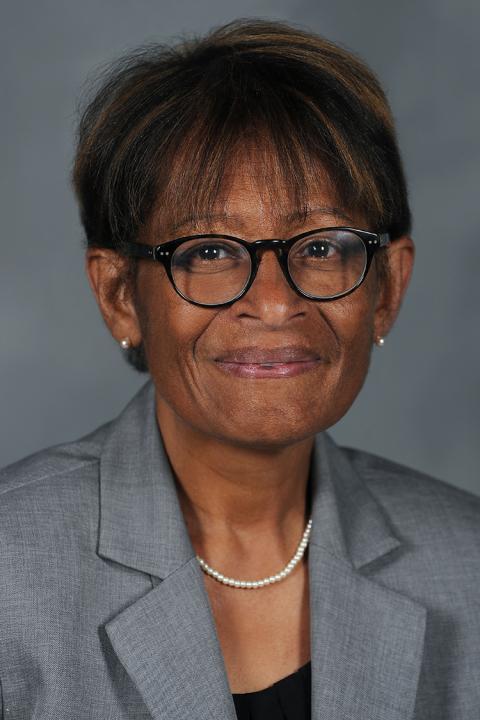 Dr. Jo Dowell, Ph.D., APRN, CNP, PNP, FNP-BC, CFNE, serves as Assistant Professor for the Â鶹ľ«Ńˇ College of Nursing and examines pediatric asthma and improving health outcomes for children who suffer from this disease. In a recent national report, Asthma Capitals 2019: The Most Challenging Places to Live with Asthma, the Asthma & Allergy Foundation of America (AAFA) ranked Cleveland (5th) and Akron (14th) as two of the worst cities in the United States for asthma prevalence, emergency department visits due to asthma attacks, and asthma mortality. The grim realities of living with asthma in northeast Ohio are further complicated by poverty and related issues of substandard housing, poor air quality, lack of transportation, and inability to pay for treatment. African American children are especially vulnerable to the disease with a mortality rate ten times higher than non-Hispanic white children. Dr. Dowell has devoted her career to improving health-related quality of life for children with asthma with a particular focus on symptom management and health disparities among diverse, underserved populations.
Dr. Jo Dowell, Ph.D., APRN, CNP, PNP, FNP-BC, CFNE, serves as Assistant Professor for the Â鶹ľ«Ńˇ College of Nursing and examines pediatric asthma and improving health outcomes for children who suffer from this disease. In a recent national report, Asthma Capitals 2019: The Most Challenging Places to Live with Asthma, the Asthma & Allergy Foundation of America (AAFA) ranked Cleveland (5th) and Akron (14th) as two of the worst cities in the United States for asthma prevalence, emergency department visits due to asthma attacks, and asthma mortality. The grim realities of living with asthma in northeast Ohio are further complicated by poverty and related issues of substandard housing, poor air quality, lack of transportation, and inability to pay for treatment. African American children are especially vulnerable to the disease with a mortality rate ten times higher than non-Hispanic white children. Dr. Dowell has devoted her career to improving health-related quality of life for children with asthma with a particular focus on symptom management and health disparities among diverse, underserved populations.
Dr. Dowell first became interested in studying childhood asthma while working as a nurse, then assistant head nurse and head nurse, for the Pediatric Intensive Care Unit at Brenner Children’s Hospital in Winston-Salem, North Carolina. In addition to caring for patients with childhood asthma, Dr. Dowell’s interest in helping this population became more personal when her daughter was diagnosed with the disease. She recalls, “With my own child having exercise-induced asthma, questions raised during her care led me to study the complexity of health outcomes related to children with asthma.” Dr. Dowell has completed a number of studies exploring caregivers’ and children’s perspectives on communication and symptom management, along with community organizations’ experiences with asthma symptom management with diverse populations such as Head Start and school-based programs. Her findings have provided foundational information on the importance of interorganizational networks for effective management of childhood asthma.
To better understand the effects of community environments on health outcomes for children with chronic illness, Dr. Dowell has acquired expertise in developing partnerships and bringing multiple key stakeholders together to collectively improve asthma symptom management for children and their caregivers. Her familiarity with institutions in northeast Ohio supporting the health of children and families has allowed her to establish strong community ties for conducting innovative research, including schools, community and religious organizations, and medical centers. Recently, Dr. Dowell has turned her attention to the Clark-Fulton area of Cleveland in Northeast Ohio, an economically disadvantaged, industrial area with a Hispanic population of 48%, including families who relocated from Puerto Rico following the devastation of Hurricane Maria. Considered a “hot spot” for childhood asthma in the Cleveland area, over 21% of children have an asthma diagnosis, according to Cleveland’s Better Health Partnership. As part of an interconnected network that includes local high schools, MetroHealth Medical Center, and Esperanza, a non-profit organization dedicated to the promotion and advancement of Latino educational achievement, Dr. Dowell’s latest research focuses on community interventions to improve asthma management for children living in this area. She states, “One of the fascinating things to me is the idea that I can have an influence on the direction of science related to children’s health outcomes.”
Dr. Dowell received her Ph.D. from the University of North Carolina School of Nursing at Chapel Hill, her MSN from East Tennessee State University, and her BSN from Gardner-Webb College in North Carolina. She completed postdoctoral fellowships at Duke University and The Ohio State University and post-master’s certificates at the University of North Carolina School of Nursing and School of Public Health. Previous to her position at Â鶹ľ«Ńˇ College of Nursing, she served as an Assistant Professor at Winston-Salem State University and has held clinical positions for various health care organizations as a nurse practitioner and pediatric/family nurse practitioner. She has participated in several longitudinal studies funded by R01 grant awards from the National Institutes of Health, presented research locally, nationally and internationally, and published in various peer-reviewed journals, including the Journal of Human Behavior in the Social Environment, Journal of Child Health Care, and Journal of Pediatric Nursing.
